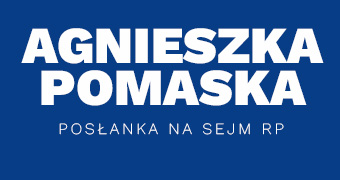Every six months a different member state of the European Union holds the Presidency and presides over the work of the Council of the European Union. During this time the state holding the Presidency plays host to the majority of the Union’s events and plays a key role in the activities of the European Union. It is responsible for organising EU meetings, setting the Union’s political agenda and ensuring its development, integration and security.
Presidency tasks focus on three issues of key importance:
1. Conducting the work of the EU Council and its subsidiary bodies (working groups and committees) as well as the European Council
2. Representing the EU Council in its dealings with other EU institutions
3. Representing the EU in international relations (with third countries and international organizations)
The first task is connected with the necessity of organising several thousand meetings (formal meetings to discuss current issues and informal meetings in order to exchange views on long-term matters) in Brussels, Luxembourg and the country holding the Presidency, including meetings at the highest level, such as European Council meetings and summits with the leaders of third countries. A key role of the Presidency is ‘building bridges’ and working out agreements among Member States, particularly when sensitive and controversial issues are involved. In such cases the Presidency listens to the opinions of individual Member States and institutions of the European Union and then presents compromise proposals. In cases requiring a rapid decision, the Presidency on its own initiative or at the request of the Commission or a Member State convenes an extraordinary Council meeting within 48 hours or, in an emergency, within a shorter period (Article 22 of the TEU). The Presidency also signs acts adopted by the Council. Moreover, the Presidency convenes intergovernmental conferences of the representatives of Member States when necessary to introduce amendments to the Treaty on European Union.
Another task is representing the Council before other EU institutions, particularly the European Commission and the European Parliament. This task requires, first and foremost, substantive and procedural fluency at a political level and, perhaps more importantly, at a clerical level. Over a period of six months, the nation holding the Presidency carries out the work of the Council and shapes its relations with institutional partners. Therefore, the functioning of the Union over this period depends on efficiency and adequate preparation. The performance of this task requires thorough preparation of the representatives of the state holding the Presidency and their intensive cooperation with the institutions well in advance of the beginning of the Presidency. The Presidency duties which this task entails are, among others, co-chairing the conciliation Committee meetings convened in the framework of the co-decision procedure and participating in Troika meetings, as well as chairing these meetings and regularly updating the European Parliament on work in the area of police and judicial cooperation on criminal matters (Article 39 of the TEU) and cooperation with the European Parliament.
The third task entails representing the Union in its relations with third countries and international organizations, in cooperation with the High Representative for the Common Foreign and Security Policy and the Commissioner for External Relations. Representing the EU in international relations refers to identification of the most important areas of EU potential activity during the Presidency and setting possible priorities for the Presidency in this area. Depending on the course of further treaty reform, the most significant changes may occur in the envisaged post of the High Representative for Foreign Affairs.
It is worth underlining a key role of the Presidency in representing the Union in matters concerned with the Common Foreign and Security Policy (the CFSP) and its responsibility for the implementation of decisions taken under this title, as well as the representation of the Union’s position at the meetings of international organisations and during international conferences (Article 18 of the TUE). The Presidency also consults the European Parliament on the main aspects and the basic choices of the Common Foreign and Security Policy and ensures that the views of the European Parliament are duly taken into consideration. The European Parliament is kept regularly updated by the Presidency and the Commission on the development of the CSFP (Article 21 of the TEU). Moreover, the Presidency, authorized by the Council, can enter into negotiations to conclude an agreement with one or many states or international organisations on the Common Foreign and Security Policy and in matters connected with justice and home affairs. Representing the Union in dealings with third countries further entails the chairing of the sessions of negotiation conferences on the accession of candidate countries to the European Union, and chairing or co-chairing ministerial meetings with third countries. In addition, the Presidency is responsible for accrediting ambassadors of third countries to the European Union.

